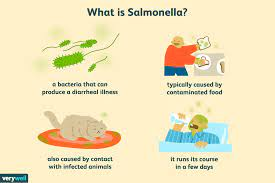EFFECT OF ANIMALS ON HUMAN HEALTH
The complex nature of human-animal relationship
Animals' effects
on human health are a complicated. Their impact may range from being extremely
positive to absolutely devastating. We all love our little pets and hate those
pesky pests living under our roofs. So, what impact do these animals have in
our daily lives?
Positive effects of Animals on human health:
Animals have
been shown to improve human health in several studies. For instance, having a
pet has been linked to enhanced cardiovascular health, decreased stress levels,
and lower blood pressure.
Therapy and Companionship Animals:
In addition,
therapy animals have been demonstrated to be successful in easing the symptoms
of anxiety and depression in patients with mental health issues. Some examples
may include how cat purrs are beneficial for bone health and how petting
animals releases dopamine. Additionally, persons with impairments, especially
children with autism, have benefited from using animal-assisted therapy to
enhance their motor skills and coordination.
Animal interaction for physical well-being:
Animal
interactions can also encourage physical exercise and enhance general physical health.
For those who partake in hobbies like horseback riding or dog walking, this is
especially true.
Negative effects of Animals on human health:
Animals, however, may also be harmful to human health. Salmonellosis and Lyme disease are examples of illnesses that can spread from animals to people. Animal allergies can result in respiratory issues, and animal bites or scratches can spread diseases.
Risk of zoonotic transmission:
Additionally, those who work closely with animals, such farmers or veterinary technicians, are more likely to contract zoonotic infections. A prime example maybe that of SARS-CoV-2 which had become a pandemic in recent years.
Conclusion:
In conclusion,
there are both beneficial and bad effects of animals on human health, making
this a complicated topic. While associating with animals may benefit both
physical and mental health, it's crucial to take safety measures to reduce the
danger of disease transmission and harm.
Key takeaways:
Education about the potential health effects of animals, support for responsible pet ownership, animal-assisted therapy programmes , and workplace health and safety procedures for those who work with animals are all important in order to maximize the benefits of animal interactions and minimize the risks
By Priyanka Ray
Choudhury (EDITORIAL TEAM)







Comments
Post a Comment